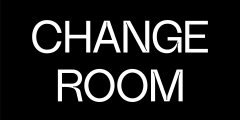STITCH & SIP - VISIBLE MENDING WORKSHOP
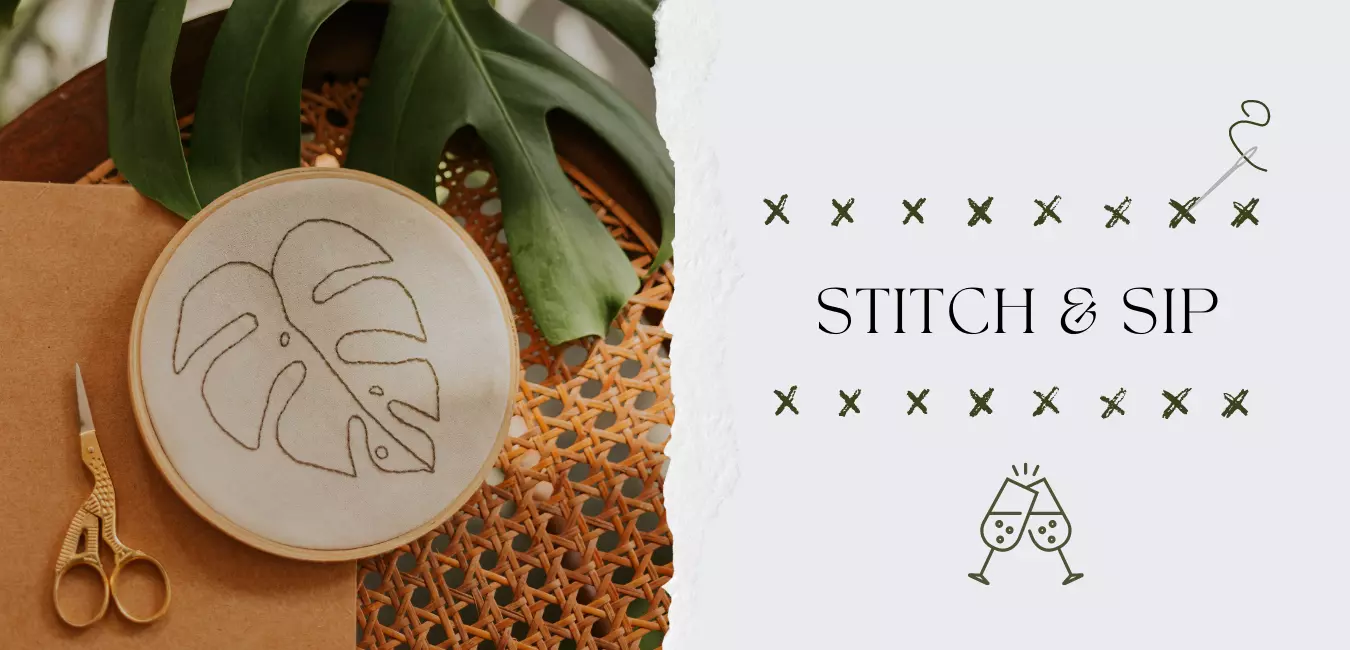
DATE
LOCATION
Co-Working Space LORETTO 9, Lorettostraße 9, 40219 Düsseldorf
LANGUAGE
German
It was a pleasure to meet again in person during our first Visible Mending Workshop!
The past two years while living through the pandemic made us rethink our “needs and wants“. More and more people started moving away from the fashion giants towards more sustainable and locally produced goods, while also focusing on prolonging the life of goods they already own.
But why are repairs important not only for the environment but also our mind?
When sewing machines came to households it changed the domestic life of many women. Sewing was an activity that connected family members and friends. However, the feminist movement in the late 1960s and early 1970s viewed sewing, mending, knitting, and other needle skills as “symbols of oppressive and unpaid domestic labor”.
This idea was criticized by third-wave feminists, who, for the most part, rejected the idea that to gain power women must inject themselves into traditionally male activities and give up any aspirations of domestic bliss. Feminism took a pronounced turn for the crafty with the publication of Stitch ‘n Bitch, the book single-handedly responsible for making knitting cool again.
Mending helps the earth and the mind
During the pandemic, TikTok made it cool again to make DIY from tufting to embroidery. While tufting is a bit too complicated to start with, embroidery is a perfect way to enter the world of crafts and also enjoy the relaxation benefits of it. It is therapeutic — it keeps your fine motor skills sharp and your mind focused. It has even been used as a therapy to improve mental and emotional health.
While staying at home, many of us also had a chance to review our closets and maybe re-discovered an old but fabulous piece and some of us might have also discovered a hole or a nasty stain that keeps us from it.
The Change Room Stitch & Sip workshop was geared to fulfil those exact needs! During the workshop we learned the basic steps of embroidery and how it can be used to mend and upgrade our clothing. We have learned how to do weaving and lazy daisy stitch.
During this workshop we once again saw that repairing your clothing with your own two hands is an empowering act that can also restore our relationship with the world around us. Thank you to all who joined us!
STITCH & SIP - VISIBLE MENDING WORKSHOP

It was a pleasure to meet again in person during our first Visible Mending Workshop!
The past two years while living through the pandemic made us rethink our “needs and wants“. More and more people started moving away from the fashion giants towards more sustainable and locally produced goods, while also focusing on prolonging the life of goods they already own.
But why are repairs important not only for the environment but also our mind?
When sewing machines came to households it changed the domestic life of many women. Sewing was an activity that connected family members and friends. However, the feminist movement in the late 1960s and early 1970s viewed sewing, mending, knitting, and other needle skills as “symbols of oppressive and unpaid domestic labor”.
This idea was criticized by third-wave feminists, who, for the most part, rejected the idea that to gain power women must inject themselves into traditionally male activities and give up any aspirations of domestic bliss. Feminism took a pronounced turn for the crafty with the publication of Stitch ‘n Bitch, the book single-handedly responsible for making knitting cool again.
Mending helps the earth and the mind
During the pandemic, TikTok made it cool again to make DIY from tufting to embroidery. While tufting is a bit too complicated to start with, embroidery is a perfect way to enter the world of crafts and also enjoy the relaxation benefits of it. It is therapeutic — it keeps your fine motor skills sharp and your mind focused. It has even been used as a therapy to improve mental and emotional health.
While staying at home, many of us also had a chance to review our closets and maybe re-discovered an old but fabulous piece and some of us might have also discovered a hole or a nasty stain that keeps us from it.
The Change Room Stitch & Sip workshop was geared to fulfil those exact needs! During the workshop we learned the basic steps of embroidery and how it can be used to mend and upgrade our clothing. We have learned how to do weaving and lazy daisy stitch.
During this workshop we once again saw that repairing your clothing with your own two hands is an empowering act that can also restore our relationship with the world around us. Thank you to all who joined us!
About Dr. Monika Hauck
Monika is a creative economist, entrepreneur, social activist and open innovation researcher. Following her Ph.D. in Entrepreneurship and Innovation Management, she was a Founder and Managing Director of the Entrepreneurship Center at WHU – Otto Beisheim School of Management, where she supported startups and corporate innovation initiatives. She is a strong proponent of sustainable and inclusive entrepreneurship and is a City Ambassador of the British social enterprise Fashion Revolution.
Born and raised in Lithuania, she started traveling the world at the age of fifteen working as an international fashion model. Now, she returned to the fashion industry with a purpose to promote more sustainable and inclusive fashion production and consumption practice. Her personal and professional experience and her enthusiasm for Circular Economy business moles motivated her to found a fashion think tank Change Room and a digital craft startup Repair Rebels.
About Ekaterina Haak:
Ekaterina is a local mending artist from Essen. She grew up in the former USSR and therefore repairing was and is a big part of her cultural background. After her studies in communication design, she fell in love with embroidery. Although Ekaterina now specializes in tiny colourful embroidery to either repair or enhance the garment, her path started with mending. She started embroidering directly on stained t-shirts to cover the stains and just later found out that what she did actually has a name – “visible mending”.
Ekaterina says that she sees her embroideries as a source of inspiration for beginners as well as mending professionals and is happy about every piece of fabric that stays in use a bit longer due to her creative touch. She believes that “if it’s worth buying a garment, it’s worth repairing it.”
Ekaterina is an experienced embroidery teacher as she holds classes for individuals and groups, therefore you will be safe in her hands! For more information check out here.
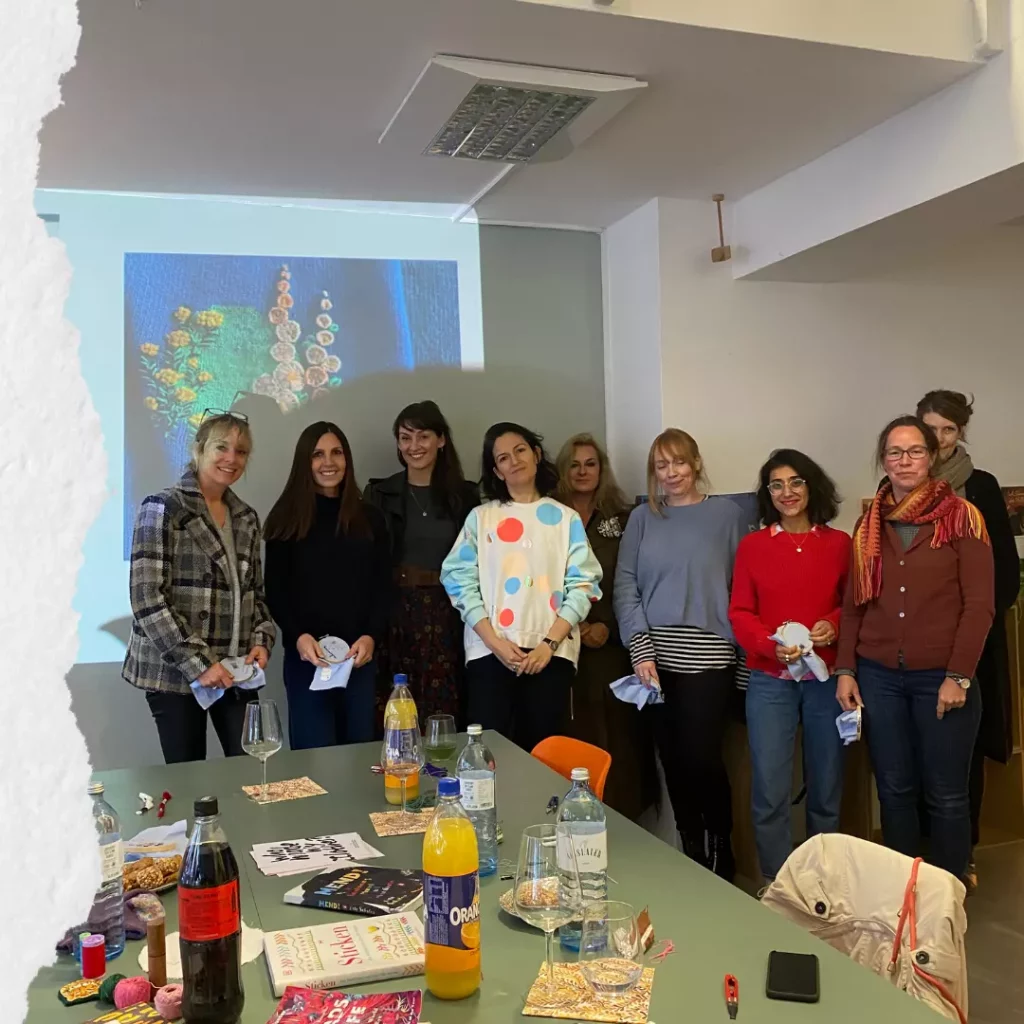
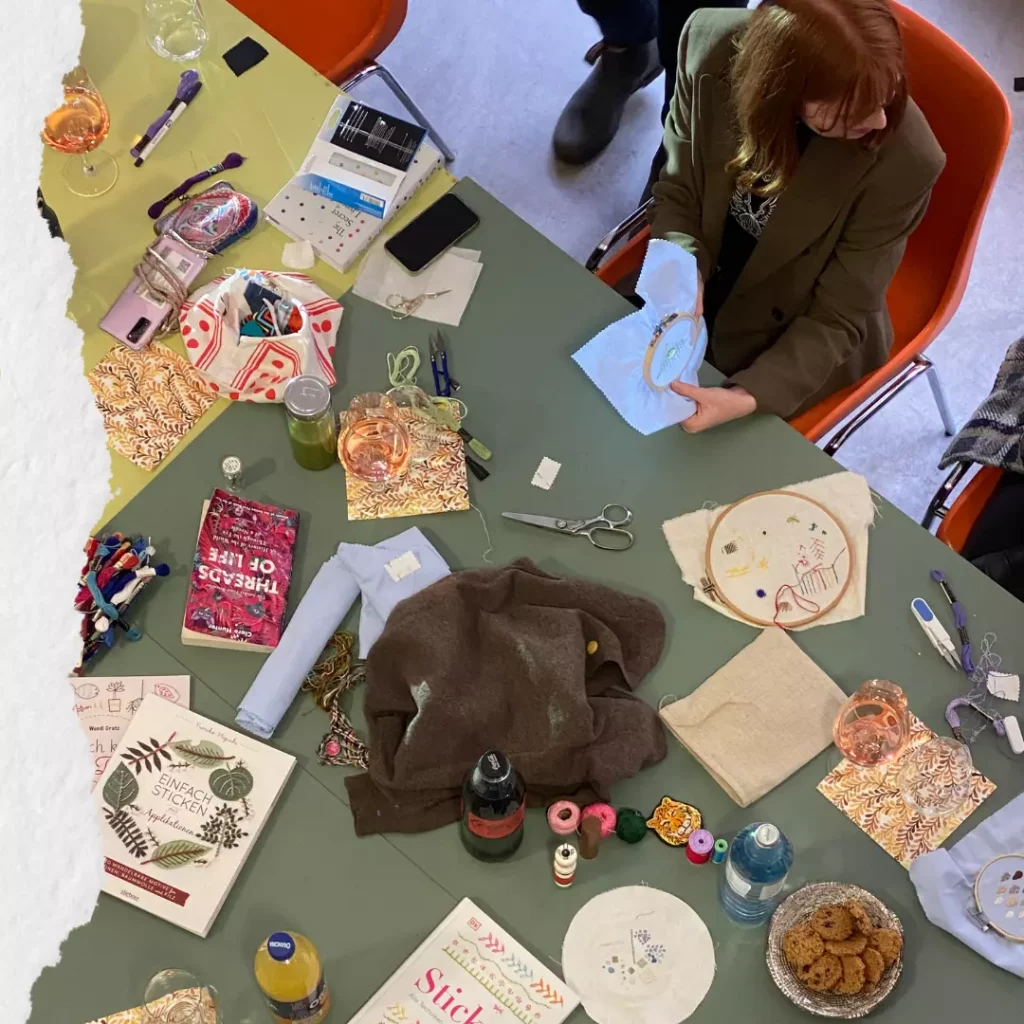
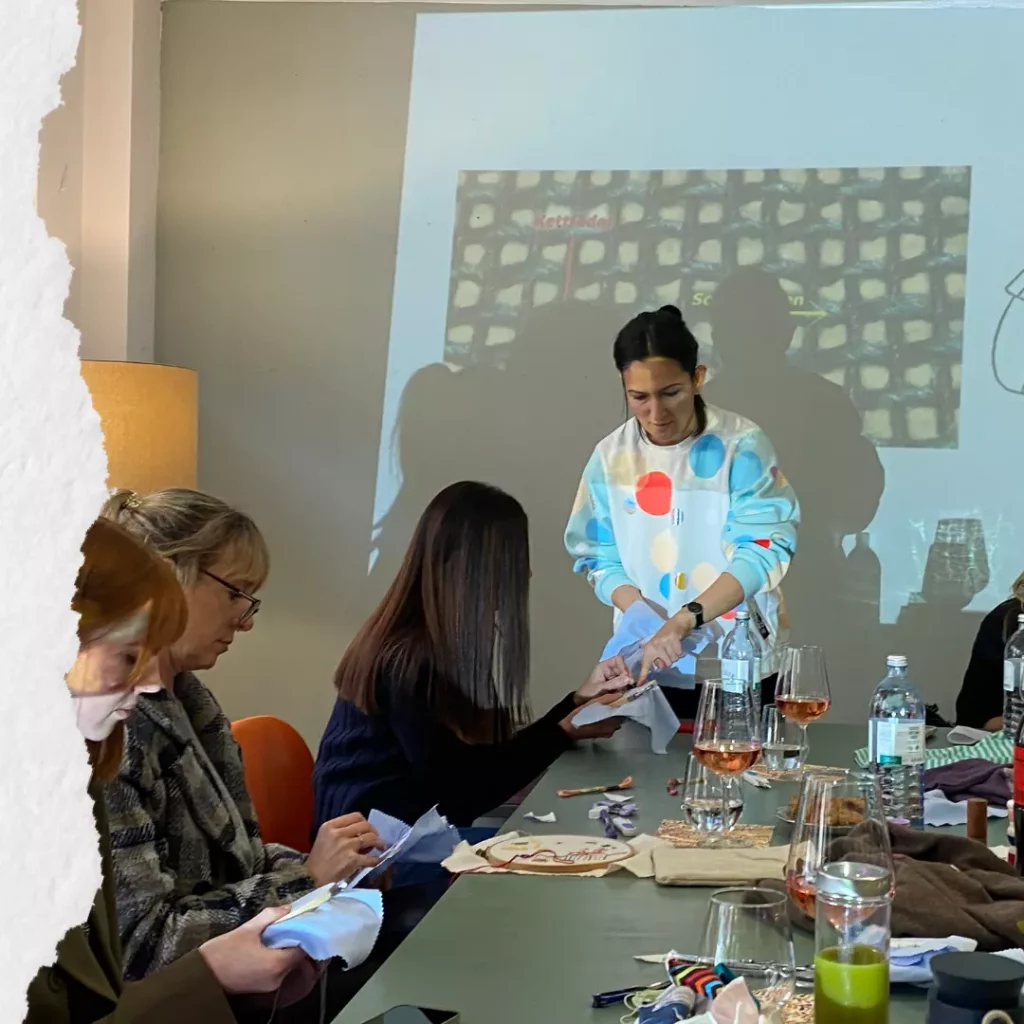
About Dr. Monika Hauck
Monika is a creative economist, entrepreneur, social activist and open innovation researcher. Following her Ph.D. in Entrepreneurship and Innovation Management, she was a Founder and Managing Director of the Entrepreneurship Center at WHU – Otto Beisheim School of Management, where she supported startups and corporate innovation initiatives. She is a strong proponent of sustainable and inclusive entrepreneurship and is a City Ambassador of the British social enterprise Fashion Revolution.
Born and raised in Lithuania, she started traveling the world at the age of fifteen working as an international fashion model. Now, she returned to the fashion industry with a purpose to promote more sustainable and inclusive fashion production and consumption practice. Her personal and professional experience and her enthusiasm for Circular Economy business moles motivated her to found a fashion think tank Change Room and a digital craft startup Repair Rebels.
About Ekaterina Haak:
Ekaterina is a local mending artist from Essen. She grew up in the former USSR and therefore repairing was and is a big part of her cultural background. After her studies in communication design, she fell in love with embroidery. Although Ekaterina now specializes in tiny colourful embroidery to either repair or enhance the garment, her path started with mending. She started embroidering directly on stained t-shirts to cover the stains and just later found out that what she did actually has a name – “visible mending”.
Ekaterina says that she sees her embroideries as a source of inspiration for beginners as well as mending professionals and is happy about every piece of fabric that stays in use a bit longer due to her creative touch. She believes that “if it’s worth buying a garment, it’s worth repairing it.”
Ekaterina is an experienced embroidery teacher as she holds classes for individuals and groups, therefore you will be safe in her hands! For more information check out here.
